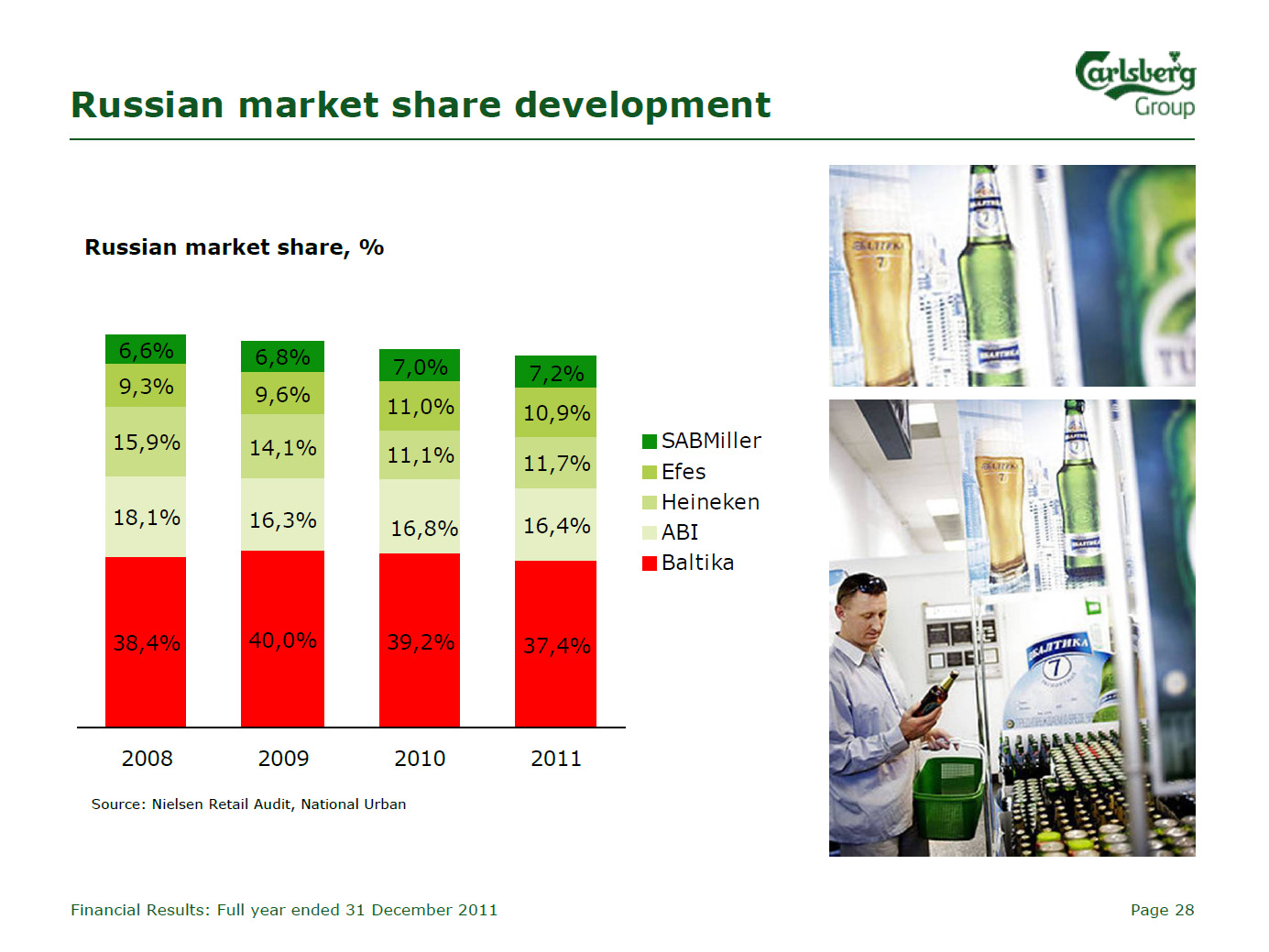Several media reported at the end of October 2012 that Russian President Vladimir Putin is stepping up his attempts to fight the bad health of Russians by banning smoking in public places and setting a minimum price on wine. Already it’s illegal to drink alcohol in public places.
Ho, ho, that’s a tough one. The Brewers of Europe, an industry body not known for its foam-at-the mouth rhetoric, recently wondered aloud if France is an EU member state, thus expressing its shock over the French government’s anti-industry, anti-EU ministerial stance.
As of 1 February 2013, Belgium’s major brewer AB-InBev will increase the price of its beers by EUR 0.02 per glass on average, Belgian media reported in early November 2012. Allegedly, the price hike is due to higher input costs.
Cynics in the beverage industry may think that drinkable beauty elixirs are to the 21st century what snake oils were to the Wild West: an expensive fad. However, in their quest for the Next Big Thing, global beverage companies cannot leave the booming beauty market untapped. If there are millions of desperate women out there who might succumb to the idea that a bottle a day will keep the plastic surgeon away, why not serve them with a beverage that they think will give them everlasting youth and beauty?
AB-InBev, the world's biggest brewer, said on 31 October 2012 that in the third quarter (July to September) revenues rose by 9.1 percent to USD 10.3 billion, despite a slight decrease in the global volumes of sales. Total volumes dropped 0.3 percent, the brewer reported, after having declined 0.1 percent in the previous quarter.
Third quarter beer sales in Russia could prove a mixed bag for brewers. While Heineken on 24 October 2012 reported beer volume gains in its Central & Eastern European unit (that’s Bulgaria, the Czech Republic, Poland, Romania, Russia and Serbia!) by 3.6 percent on an organic basis, AB-InBev was forced to admit on 31 October 2012 that it saw its Russian beer volumes decline by 17 percent in the quarter.
“Vodka Martini, James?” “No, make mine a Heineken.” The day after James Bond was first seen sipping a Heineken out of a bottle on the big screen – a deal reportedly worth USD 45 million to the Dutch brewer - Heineken said on 24 October 2012 that its third-quarter revenue grew 7.1 percent to EUR 4.97 billion, with an organic growth of 4 percent. Volumes were up 1.5 percent thanks to the brewer selling more beer in the Americas, Eastern Europe and Africa.
This is what France’s President Francois Hollande means by squeezing the rich. In his EUR 7 billion tax rise for the well-off and for firms he did not spare the brewers. On 1 October 2012 the French Government unveiled plans to hike beer excise by a staggering 160 percent. This would hit foreign-owned brewers most, as 90 percent of the beer market is controlled by AB-InBev, Heineken and Carlsberg. Beer production in France stood at 17 million hl in 2011.
The family shareholders of Duvel Moortgat NV, the brewer of Duvel, are prepared to splash out EUR 125 million to buy all of Duvel’s shares that are not yet in their possession, the company said on 12 October 2012. The family still owns three-quarters of the shares.
The saying came to mind about rodents deserting a sinking ship when news broke on 11 October 2012 that Coca Cola Hellenic (CCH) is leaving the country to seek legal incorporation in Switzerland, together with a London stock-market listing. The material impact on Greece will be limited, the company said. The Greek plants will go on working and the business will be unaffected.


